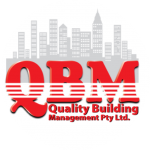Community Titled Scheme – Ultimate Checklist to Look For When Buying
Thinking of buying a unit in a Community Titled Scheme? Then keep reading to discover our checklist!
The following information has been compiled after the inspection of thousands of strata properties and the completion of many thousands of Sinking Fund, Insurance Valuation, Safety and Building Condition reports.
The aim is to give prospective purchasers the information on what questions to ask and the information you should get to allow you to make an informed decision about whether a Unit is suitable for your requirements.
Australia recently achieved the milestone of achieving a population of 24 million. This is expected to grow to 30 million by 2030. The majority of these additional people will need to live in higher density housing such as strata schemes. Thus, the need to be educated in Community Titled Scheme is critical.
We highly recommend that you engage a professional company to conduct a review of all the Strata Records prior to making the final purchasing decision. A professional company will identify the majority of the items covered in this document, but with the information provided here, you will understand their report and be aware of what areas may be of concern.
10 Points to consider
- Type of Survey Plan
- Contribution and Interest schedule of Lot Entitlements
- Age of Complex
- Operational Issues of the Strata Scheme
- By-Laws for the Scheme
- Condition of Common Areas
- Condition of the internal of the unit
- Is there an On-site Manager
- If short term rentals units are in the complex
Type of Community Titled Scheme:
The first thing to understand is the differences between the various Scheme types. The type of scheme or plan, affects everything within a Strata Scheme. The two main issues though are:
- What do I own and what is Common area;
- What do I need to maintain;
| New South Wales | |
| Strata Scheme | Buildings or a collection of buildings, such as apartments or townhouses, where individuals own a portion known as a ‘lot’. Common property ownership is shared between lot owners, such as driveways, foyers and gardens.
The lot owner maintains only the areas within the lot. |
| Neighbour Scheme | A scheme, generally of townhouses or stand-alone houses where the lot owner owns the land upon which the lot sits. Common areas are then limited to roads and any common buildings such as recreational centres.
The lot owner maintains the whole lot, internal and external. |
| Queensland | |
| Building Format Plan | Buildings or a collection of buildings, such as apartments or townhouses, where individuals own a portion known as a ‘lot’. Common property ownership is shared between lot owners, such as driveways, foyers and gardens.
The lot owner maintains only the areas within the lot. |
| Standard Format Plan (Group Title) | A scheme, generally of townhouses or stand-alone houses where the lot owner owns the land upon which the lot sits. Common areas are then limited to roads and any common buildings such as recreational centres and in some cases, shared infrastructure such as shared roof gutters.
The lot owner maintains the whole lot, internal and external. |
By knowing the type of plan, and being aware of what you are actually purchasing, you will be able to make more sense of the levies you will be required to pay and the reasoning behind them.
Such other things to consider that will affect your enjoyment of the unit and may affect a future sale price are:
- The Gardens
- Do you own any gardens
- What liability do you have for gardens
- The carport or Garage
- Do you own your car parking space
- Are you responsible for maintenance
- Any Courtyards
- Do you own courtyards or have exclusive use
- What are you maintenance responsibilities
- Improvements or changes to the lot that the previous owner may not have obtained approval
Contribution and Interest schedule of Lot Entitlements
Strata Schemes have two main levies to which each lot contributes for the upkeep of the common areas of the complex, the Sinking Fund and the Administrative Fund. Both of these funds levy owners an amount per “lot entitlement” (may vary for Qld Standard Format Plans).
Even though a complex has a certain number of lots, there may be many more lot entitlements. A lot may have a higher entitlement. Thus a complex of 10 lots may have 100 lot entitlements.
It is critical to understand the number of entitlements the lot you are purchasing has, as this will affect the amount of levies you will pay.
However, should the complex be demolished or sold for redevelopment, the number of entitlements will dictate the amount that you will receive from the insurance payout or sale. In Queensland, a separate listing is provided called “interest entitlements” which identifies these percentages.
This differs if the lot is in a Standard Format Plan or Neighbourhood Scheme.
Age of the Complex
Identifying the age of the complex may seem self-evident, but the age of the complex will dictate many issues that may be faced. A few points to consider:
| Age of Complex | Issues to consider |
| < 6 years |
|
| > 10 Years |
|
| > 25 Years |
|
| > 50 years |
|
| > 100 Years |
|
Operational issues
This is the area where the professional Strata report is designed to assist you in identifying all the problems that may be present within the operations of the Owners Corporation (OC) / Body Corporate.(BC)
The Sinking fund
- Age of report/forecast
- The Sinking Fund report must have at least 9 years to run.
- If the forecast is older than 5 years, it may prove that the committee is not operating the OC / BC in accordance with Legislation.
- Balance of Sinking Fund
- If it is low, why?
- Have major works been recently completed?
- Is it too high?
- Why are the Committee not spending money on maintaining the complex?
- Increasing number of committees are hoarding their funds and not spending on repairs and maintenance believing that units have a better chance of selling if there is a large sum in Sinking Fund. When in fact it’s the opposite, as value is lost in poor or no maintenance.
- If it is low, why?
- Are levies set too low or too high?
- Are the levies set according to the Sinking Fund report?
- From your experience, consider how much to repaint the complex. Are there sufficient funds to cover that?
- If the levies are set too high, why? Are there major works planned, or are there major defects to be rectified?
- Are there any Special levies?
- Why?
- Are there major renovations or upgrades planned?
- Are there major defects requiring rectification?
- Are some owners not paying levies?
Administration Fund
- What is the Balance of the Fund?
- Are levies set too low or too high?
What is the Complex insured for?
- Is there a current Insurance Valuation report?
- Has a report been completed on a regular basis, at least each 5 years?
- Divide the total amount by number of lots and does it seem feasible?
- Could you build a new unit for the amount it is insured for?
- Remember that the amount it is insured for, is to cover a complete replacement of all buildings, services and associated infrastructure, including roads, pools, etc.
Are there any outstanding debts?
- Why are the Committee not paying its bills?
Are any lot owners not paying the levies?
- It is a common problem?
- How far in arrears are levies?
Is there a lift on-site?
- Has regular servicing been conducted?
- Is there a history of call-outs for faults?
- Are upgrades planned, and is there funds for these? (you may be up for a Special Levy as soon as you purchase)
Health and Safety reports
- Identify if the complex requires a safety report;
- How often are these completed? If not yearly, ask why and are there items being hidden?
- How many defects have been identified and have these been rectified?
- Has an Asbestos Report and Management Plan been completed for the complex?
- Has sampling been conducted of suspect materials? If not why? Without sampling you do not know what asbestos is on site.
- To what extent is asbestos on site?
- Did the report include the internal of lots? How much asbestos do you have in your unit?
- Identify if the complex requires a Fire Report;
- Has a Fire Audit been conducted?
- Have Annual Fire Safety Statements been completed and issued to the appropriate Authority?
- Are there Evacuation Diagrams on site?
- Is there fire equipment on site?
- Has fire equipment been serviced regularly?
Is there a Swimming Pool on-site?
- Is there a compliance certificate for the swimming pool/s?
Is there a legal file?
- Are there any current legal matters?
- Is there disharmony within the building?
- Has the building been issued any notices to comply from Council?
- Will the OC / BC be required to make any payouts?
Is there a quotes folder?
- Is there any major proposed expenditure in the quotes folder?
- Does the Committee get more than one quote for services? It is proven that a committee can save up to 44% by getting quotes.
- If only getting one quote, why? Who benefits?
Are there any defect reports?
- Have the defect issues been resolved? (Defects can run into $10,000’s or $100,000’s of dollars).
By Laws – how do these fit with your lifestyle?
The By-Laws cover the operation of the Scheme. Covered are what lot owners are to do and how they are to act and maintain their lots. Some can be very restrictive and may not suit your lifestyle.
Things to consider!
- Are you allowed pets?
- To what standard of appearance are units to be kept?
- Damage of common property?
- Obstruction of common property?
- Garbage disposal?
- Cars and parking?
Condition of public and common areas
The condition of the common areas of a complex will generally give you a great understanding of how the complex is being run, the types of people living in the complex and expenditure on maintenance and upgrades being undertaken.
Things to consider!
- Are they well maintained?
- Is there rubbish stored on-site?
- Are there visible safety issues?
- Is paint peeling?
- Are there cracks to walls?
- Are there signs of roof leaks by noticing mildew on soffits?
Condition of the internal of the unit
Are you buying the unit to live in or as an investment? This will dictate what you are prepared to accept as to the condition. But remember that if it is for an investment then the repairs and upgrades undertaken to install a tenant need to be Capitalised and not classed as an immediate deduction.
- How much will you need to spend before you will be happy living there?
- Are you getting a building report?
Is there an on-site manager?
Most on-site managers are terrific and add value to a complex. However, some managers don’t do anything and just cost money.
Which one does this complex have?
Are there short-term rentals on-site?
Things to consider!
- Are these legal and approved?
- Are there Airbnb units on-site?
- If you are buying to live in the unit, will you be happy to have a constant stream of new people on-site?
- Are you ok with noise?
- Are the Sinking and Administration Funds sufficient to cater for the added deterioration caused by short-term rentals?
ABOUT QBM
Quality Building Management (QBM) formed by Donald Pitt who has been an active professional within the Building and Strata Industries since 1970.
Specialising in everything to keep Commercial, Industrial and Residential Complexes safe and legally compliant, QBM provide the full range of Asbestos, Fire and Building inspections, reporting and training services for Property Owners and Managers, as well Real Estate Agents.
By doing all the required services and investing in systems and our people, we can confidently give cost-saving guarantees where you will save money.
To find out more about QBM contact us today!
The information provided in this article is of a general nature only and does not represent nor is it intended to be advice of a personal nature or any particular nature. Quality Building Management Pty Ltd strongly suggests that no person should specifically act upon any information supplied in this article, but should obtain our professional advice concerning your specific issue or personal circumstances.






